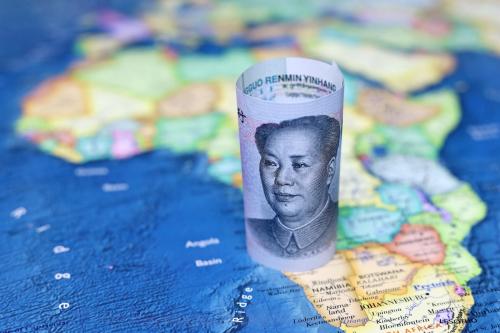This paper is part of a series from the Cross-Brookings Initiative on Energy and Climate. The paper’s executive summary follows. Listen to a podcast with the author, Jeff Ball, and David G. Victor.
Executive summary
A view gaining ground in the West holds that China’s determined dominance of a range of low-carbon industries, from more-efficient coal combustion to solar and wind power to electric vehicles, threatens the national security of developed nations and the fortunes of their firms. That view is outdated, ill-advised, and overdue for a rethink. China’s clean-energy juggernaut—call it Green China Inc.—is growing up. The West, for its own economic good, should grow up too in its approach to Green China Inc.
Green China Inc. is maturing both because the Chinese economy is maturing and because the global push for cleaner energy is as well. The upshot is a global shift to greener growth, with China leading the way. This shift defines a new era in the business of energy and thus in geopolitics. It ought, too, to define a new era in the West’s approach to Green China Inc.—one that, for the long haul, actually serves the West’s economic self-interest, to say nothing of the planet’s health.
Crucial to a new approach should be a rejection of what traditionally have been dubbed “protectionist” policies, billed as propping up domestic players by keeping foreign competitors at bay. Those policies have had spotty records throughout the economy, but they are particularly ill-suited to the clean-energy sector.
To be sure, the geostrategic kernel of the Western worry about Green China Inc. contains grains of legitimacy. But the West’s anxiety about Green China Inc. is prompting a variety of wrongheaded responses. One is a trade war in which the United States imposes tariffs on imported Chinese clean-energy products and China retaliates with tariffs against U.S. goods. As of this writing, in mid-2019, the tariff fight between the two countries is intensifying.
The Western attempt to quash Green China Inc. is problematic for at least three reasons: It’s environmentally dangerous, geopolitically moot, and, even when viewed purely through the lens of Western self-interest, economically counterproductive. Indeed, the West is in a strong position to profit from the maturation of Green China Inc., largely because of the West’s long-standing leadership in technological innovation.
Green China Inc.’s maturation presents myriad opportunities for Western players. Four stand out: China’s current opening of its electric vehicle market, the world’s largest, to international companies; foreign investment in big Chinese clean-energy projects; a market in China for increasingly sophisticated technologies and business models to combat air pollution; and, amid the Belt and Road Initiative, a massive program of Chinese investment in infrastructure in approximately 65 countries, a desire by many of those countries to balance the money and technology they’re getting from China with money and technology from the West.
It is important to be clear: A transition to a smarter Western approach to Green China Inc. won’t be easy or smooth; it will be hard and rough.
But now is a crucial moment for the West to grasp its economic self-interest and modernize its approach to Green China Inc. It is possible that the trade talks between the United States and China that have faltered as of this writing still may be resuscitated. That would offer a potential framework for a less-antagonistic economic relationship between the two countries. But whatever happens with trade negotiations, an overarching reality remains: China has launched a potentially massive transformation of its green enterprise, one intended to improve the economic efficiency of a Green China Inc. that has, in fundamental ways, grown soft. That is an opportunity for Western capitalists as much as for Chinese ones—to say nothing of the planet.
The Brookings Institution is committed to quality, independence, and impact.
We are supported by a diverse array of funders. In line with our values and policies, each Brookings publication represents the sole views of its author(s).







